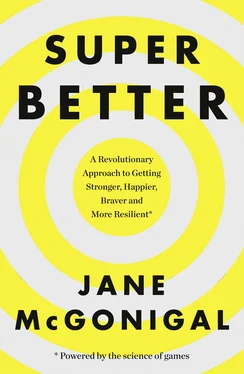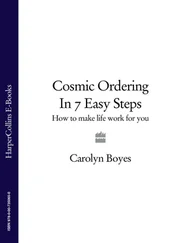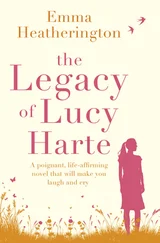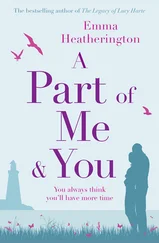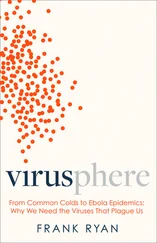At the time, I thought to myself, What on earth is going on here? How could a game so seemingly trivial, so admittedly simple, intervene so powerfully in such serious, in some cases life-and-death, circumstances? To be frank, if it hadn’t already worked for me, there’s no way I would have believed it was possible.
When I was recovered enough to do research, I dove into the scientific literature. And here’s what I learned: some people get stronger and happier after a traumatic event. And that’s what was happening to us. The game was helping us experience what scientists call post-traumatic growth, which is not something we usually hear about. More commonly, we hear about post-traumatic stress disorder , in which individuals experience ongoing anxiety and depression.
But research has shown that traumatic events don’t always lead to long-term difficulty. Instead, some individuals find that struggling with highly challenging life circumstances helps them unleash their best qualities and eventually lead happier lives. 2
To give you a better idea of what post-traumatic growth looks like, here are the top five things that people with post-traumatic growth say:
1. My priorities have changed. I’m not afraid to do what makes me happy.
2. I feel closer to my friends and family.
3. I understand myself better. I know who I really am now.
4. I have a new sense of meaning and purpose in my life.
5. I’m better able to focus on my goals and dreams. 3
Taken together, these five traits represent a powerful positive transformation. But it’s more than that. There’s actually something quite astonishing about the benefits of post-traumatic growth, something I noticed in the course of my research.
A few years ago an Australian hospice worker named Bronnie Ware published an article called “Regrets of the Dying.” 4Ware would know—she had spent a decade caring for patients at the end of their lives. She wrote that the same regrets were repeated again and again by her patients, year after year—and after she published her article, she heard from hundreds of hospice workers and caretakers all over the world who confirmed her findings. They had heard the same five regrets over the years. Apparently they are nearly universal. Not everyone has regrets on their deathbed—but if they do, they are likely to be one or more of the following:
1. I wish I hadn’t worked so hard.
2. I wish I had stayed in touch with my friends.
3. I wish I had let myself be happier.
4. I wish I’d had the courage to express my true self.
5. I wish I’d lived a life true to my dreams, instead of what others expected of me.
Think about this list for a moment. Are you having the same “aha!” moment that I had, two years ago, when I first encountered it?
Remarkably, the top five regrets of the dying are essentially the exact opposite of the top five experiences of post-traumatic growth. With post-traumatic growth, we find the strength and courage to do the things that make us happy, and to understand and express our true selves. We prioritize relationships and meaningful work that inspires us.
Post-traumatic growth is not the opposite of post-traumatic stress disorder, by the way. Many people who suffer post-traumatic stress disorder also go on to experience post-traumatic growth. The two are not mutually exclusive by any means. In fact, one study found that symptoms of post-traumatic stress were actually predictive of eventual post-traumatic growth—possibly because transformative growth requires wrestling in a deep and sustained way with something very difficult. If we bounce back too quickly, we miss the growth. 5
Extreme personal challenge—if we respond in the right way—unlocks our ability to lead a life truer to our dreams and free of regrets. Looked at this way, post-traumatic growth—or getting superbetter—seems like a pretty strong candidate for the single most desirable personal transformation anyone could hope to undertake.
But how do you get from extreme stress or trauma to these five benefits? Research shows that not everyone who experiences a trauma goes on to have post-traumatic growth. So what exactly is the right process?
More important, is there any way to experience these benefits without having a trauma ? I’m pretty sure no one would ever choose to suffer a terrible loss, an injury, an illness, or any other kind of trauma just to get these benefits. But at the same time, who wouldn’t want to lead a life truer to their dreams and free of regret?
And so I set off on another two years of research. And here’s what I discovered: you can experience the benefits of post-traumatic growth without the trauma, if you are willing to undertake an extreme challenge in your life—such as running a marathon, writing a book, starting a business, becoming a parent, quitting smoking, or making a spiritual journey. Researchers call this post-ecstatic growth. Ann Marie Roepke, a practicing clinical psychologist who first identified the phenomenon as a University of Pennsylvania doctoral candidate, describes it as “gains without pains”—or at least, far fewer pains. 6It works the same way post-traumatic growth does, except you get to choose your own challenge. Instead of waiting for life to throw a terrible trauma at you, you can cultivate post-ecstatic growth at any time by intentionally undertaking a meaningful project or mission that creates significant stress and challenge for you. This stressful adventure you’ve chosen for yourself creates the necessary conditions for you to struggle and grow as much as someone who is battling a trauma.
So if post-traumatic growth and post-ecstatic growth work the same way, what exactly is that process? What makes the difference between buckling under extreme stress and flourishing because of it? What determines whether you’ll be weakened by adversity or strengthened by it?
This is where the research gets really exciting—at least for a game designer like me.
It turns out that there are seven ways of thinking and acting that contribute to post-traumatic and post-ecstatic growth. And they are all ways that we commonly think and act when we play games.
1. Adopt a challenge mindset.You need to be willing to engage with obstacles and look at stressful life events as a challenge, not a threat. In games, we call this simply “accepting the challenge to play.”
2. Seek out whatever makes you stronger and happier.When you are facing a tough challenge, you need constant access to positive emotions, and you must look after your physical health. In games, we practice this rule by seeking out “power-ups,” items that make us stronger, faster, and more powerful.
3. Strive for psychological flexibility.Be open to negative experiences, such as pain or failure, if they help you learn or get closer to your larger goal. Be driven by courage, curiosity, and the desire to improve. In games, we follow this rule whenever we battle a tough opponent or “bad guys,” knowing we may fail many times before we become clever or skillful enough to defeat them.
4. Take committed action.Make small steps toward your biggest goal, every single day. Taking committed action means trying to take a step forward, even if it is difficult for you. It means always keeping your eyes on the larger goal. In games, we have a structure to do this. It’s called a “quest,” and it helps us stay focused on making progress toward the goal that matters most to us.
5. Cultivate connectedness.Try to find at least two people you feel you can ask for help, and who you can speak to honestly about your stress and challenges. In multiplayer games, we practice the art of making “allies”—people who understand the obstacles we’re facing and who have our back.
Читать дальше
